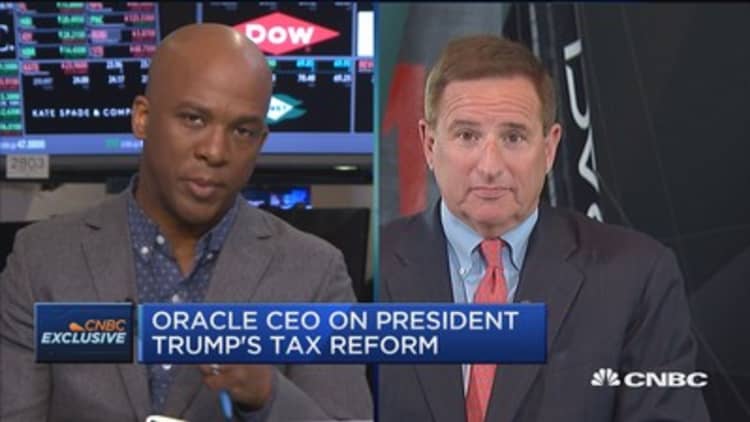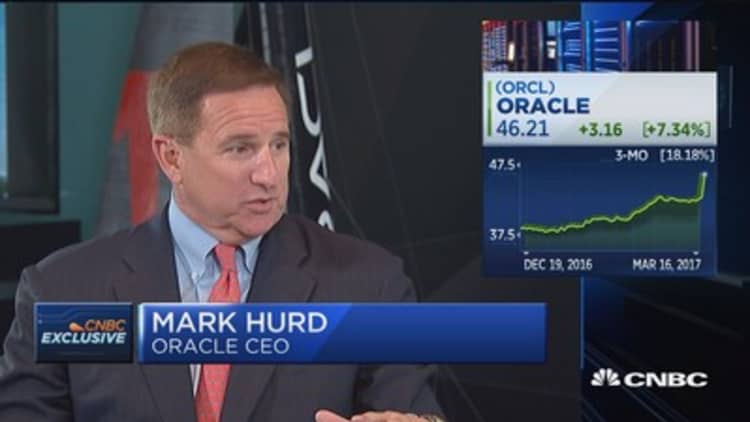
Don't expect mass layoffs of IT workers even as the world's biggest companies move more of their workload to the cloud, Oracle CEO Mark Hurd told CNBC.
"I don't know if it is so much reductions," he said on "Squawk Alley" on Thursday. "I think it is the reapplication of that talent to different opportunities to the customer."
Oracle's customers have to do so much work and so many different configurations of technology that use up a lot of labor, he said.
"The opportunity we have is to now do a lot of that work for the customer," he said. "They can reapply that budget, that manpower and that talent to things that help the company gain market share, to help the customer deliver better service to their customers."
More than 80 percent of Oracle's customers' budgets are used just to keep existing systems running, he said.
"It isn't just a displacement, it's a reapplication of that spending and that talent to higher order tasks," he added.

Oracle is transitioning from its database business to cloud computing and software as a service (SaaS) to compete with the likes of Amazon Web Services, Microsoft Azure and Salesforce.
Oracle is racing Salesforce to reach $10 billion in cloud services revenue, though Amazon dominates the cloud market.
Total cloud revenues made up 13 percent of Oracle's overall sales, up from 8 percent this time last year. However, on-premise revenues still account for 67 percent of total revenues, versus 70 percent a year ago.
Oracle reported fiscal third-quarter earnings on Wednesday that beat analysts' expectations, as software revenue popped. But the company's overall sales fell slightly short of estimates.
For the quarter, earnings per share was 69 cents, adjusted, versus the 62 cents expected by analysts. Revenue came in at $9.21 billion, just below the $9.255 billion expected by analysts. The company also upped its dividend from 15 cents to 19 cents.
— with reporting from CNBC's Josh Lipton and Anita Balakrishnan


